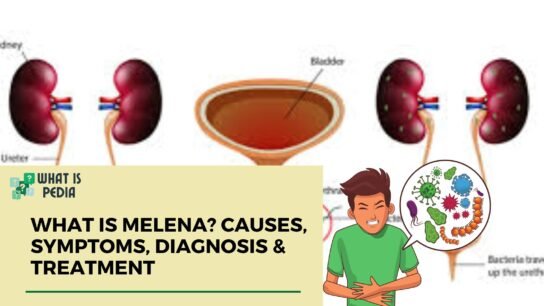1. Introduction
Metabolic syndrome is a serious health condition that affects millions of people worldwide. It is a cluster of risk factors that increase the likelihood of developing heart disease, stroke, and type 2 diabetes. Understanding what causes metabolic syndrome is essential for preventing and managing its symptoms effectively.
In today’s fast-paced world, poor dietary habits, sedentary lifestyles, and genetic factors contribute significantly to metabolic syndrome. This blog will explore metabolic syndrome definition, metabolic syndrome causes, what are the symptoms of metabolic syndrome, metabolic syndrome symptoms, and signs and symptoms of metabolic syndrome to help you take proactive measures for better health.
2. What is Metabolic Syndrome? (Metabolic Syndrome Definition)
Metabolic syndrome is a group of conditions that occur together, increasing the risk of severe health problems. The main components of metabolic syndrome include:
- High Blood Pressure: Increased pressure in the arteries can lead to cardiovascular diseases.
- High Blood Sugar: Elevated glucose levels indicate insulin resistance, a precursor to diabetes.
- Excess Body Fat Around the Waist: Abdominal obesity is a significant risk factor for metabolic syndrome.
- Abnormal Cholesterol Levels: Low levels of HDL (good cholesterol) and high levels of LDL (bad cholesterol) contribute to heart disease.
Metabolic syndrome significantly increases the risk of developing chronic diseases such as diabetes, heart disease, and stroke. Early detection and lifestyle modifications are crucial in managing this condition effectively.
3. What Causes Metabolic Syndrome? (Main Focus)
The primary causes of metabolic syndrome include several lifestyle and genetic factors. Let’s explore them in detail:
1. Insulin Resistance
Insulin is a hormone that helps cells absorb glucose for energy. In insulin resistance, the body’s cells do not respond properly to insulin, leading to elevated blood sugar levels. Over time, this can cause type 2 diabetes and metabolic syndrome.
2. Obesity
Obesity, especially abdominal obesity, plays a significant role in metabolic syndrome. Excess fat around the waist leads to inflammation, hormonal imbalances, and insulin resistance, all of which contribute to metabolic dysfunction.
3. Unhealthy Diet
A diet high in processed foods, refined sugars, unhealthy fats, and excessive carbohydrates leads to weight gain, insulin resistance, and high cholesterol levels. Consuming whole foods rich in fiber, lean proteins, and healthy fats can help reduce the risk of metabolic syndrome.
4. Lack of Physical Activity
A sedentary lifestyle contributes to obesity, insulin resistance, and poor cardiovascular health. Regular exercise helps regulate blood sugar levels, improve insulin sensitivity, and maintain a healthy weight.
5. Genetic & Family History
Genetics can influence your likelihood of developing metabolic syndrome. If your family has a history of diabetes, hypertension, or heart disease, you may be at a higher risk.
6. Chronic Stress
Stress triggers the release of cortisol, a hormone that increases blood sugar levels and promotes fat storage. Chronic stress can lead to weight gain, insulin resistance, and high blood pressure.
7. Hormonal Imbalances
Conditions like Polycystic Ovary Syndrome (PCOS) and hypothyroidism are linked to metabolic syndrome. These disorders affect insulin sensitivity and fat metabolism, increasing the risk of metabolic syndrome.
4. What Are the Symptoms of Metabolic Syndrome? (Signs and Symptoms of Metabolic Syndrome)
Metabolic syndrome often develops gradually, making early detection difficult. Some common symptoms include:
1. Increased Waist Size
A waist circumference of more than 40 inches in men and 35 inches in women is a key indicator of metabolic syndrome.
2. High Blood Pressure
Consistently elevated blood pressure increases the risk of heart disease and stroke.
3. Elevated Blood Sugar Levels
Pre-diabetes symptoms like frequent thirst, hunger, and fatigue indicate insulin resistance.
4. Abnormal Cholesterol & Triglyceride Levels
Low HDL (good cholesterol) and high triglyceride levels increase the risk of cardiovascular diseases.
5. Fatigue & Low Energy
Persistent tiredness and low energy levels may indicate metabolic dysfunction.
6. Frequent Thirst & Urination
These are signs of high blood sugar levels, a common metabolic syndrome symptom.
5. Risk Factors for Metabolic Syndrome
Certain factors increase the risk of developing metabolic syndrome, including:
1. Age
The risk increases significantly after 40 years of age.
2. Ethnicity
Certain populations, such as South Asians and Hispanics, have a higher risk.
3. Lifestyle Choices
Unhealthy habits like poor diet, smoking, and excessive alcohol consumption contribute to metabolic syndrome.
4. Existing Health Conditions
People with PCOS, fatty liver, and type 2 diabetes are at a higher risk.
6. How to Prevent and Manage Metabolic Syndrome?
1. Healthy Eating Habits
Adopt a balanced diet with:
- High-fiber foods like fruits, vegetables, and whole grains.
- Lean proteins such as fish and chicken.
- Healthy fats from nuts, seeds, and olive oil.
2. Exercise & Physical Activity
Engage in at least 30 minutes of moderate exercise daily, such as walking, swimming, or strength training.
3. Weight Management
Losing just 5-10% of body weight can significantly improve metabolic health.
4. Stress Management
Practice meditation, yoga, and mindfulness to reduce stress levels.
5. Medical Interventions
Consult a doctor for medications if lifestyle changes are insufficient.
7. Conclusion
Metabolic syndrome is a serious health concern that can lead to severe complications if left unmanaged. By understanding what causes metabolic syndrome and its symptoms, individuals can take proactive steps to improve their health.
Simple lifestyle modifications like healthy eating, regular exercise, stress reduction, and medical supervision can significantly reduce the risk. If you notice any signs and symptoms of metabolic syndrome, consult a healthcare professional for early intervention.
Frequently Asked Questions (FAQs)
1. Can metabolic syndrome be reversed?
Yes, lifestyle changes like diet, exercise, and weight loss can help reverse metabolic syndrome.
2. Is metabolic syndrome the same as diabetes?
No, but metabolic syndrome increases the risk of developing type 2 diabetes.
3. How is metabolic syndrome diagnosed?
Doctors diagnose metabolic syndrome based on factors like waist circumference, blood pressure, blood sugar, and cholesterol levels.
4. Can diet alone prevent metabolic syndrome?
A healthy diet plays a crucial role, but exercise and stress management are equally important.
Previous Blog
Check out our previous blog: Palak Khane Ke Fayde: Immunity Se Strong Muscles Tak Sab Kuch to learn more about the health benefits of spinach.
By adopting a healthy lifestyle, you can significantly reduce your risk of metabolic syndrome and enjoy a better quality of life.







